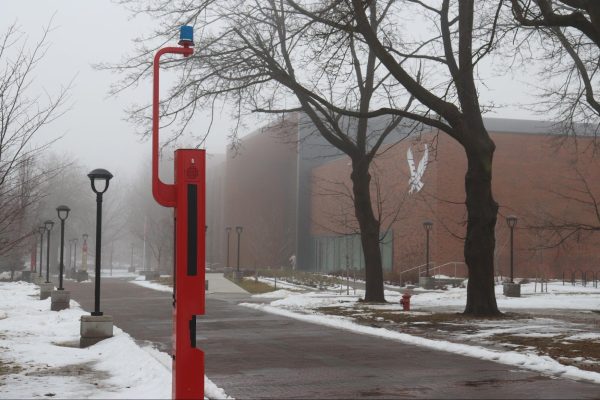Marijuana most prevalent campus drug
98 percent of drug reports and arrests made on campus involve marijuana
October 18, 2012
According to EWU police, since January 2012 there have been 10 marijuana violations, four arrests and two referrals to the Office of Student Rights and Responsibilities.
When a student is caught selling or smoking marijuana, penalties vary depending on the circumstances. Some are arrested and charged by EWU campus police, while others are solely referred to a panel with the OSRR or both processes may happen simultaneously.
The university student conduct code states: “Use, possession, distribution, manufacture or sale of drug paraphernalia and/or illegal drugs, including marijuana, narcotics or other controlled substances, is prohibited except as authorized by federal or state law. ”
Students who are convicted of possession or sale of marijuana are barred from financial aid from one year to indefinitely.
In Section 484 of the Higher Education Act of 1965, if a student is charged with possession of a controlled substance, the ineligibility period is one year for the first offense, two years for the second offense and indefinite after the third offense. For the sale of these substances it is two years for the first offense and indefinite for the second offense.
Washington is one of the three states voting on the legalization of recreational marijuana use this November. Initiative 502 would legalize the licensing, distribution, possession and use of marijuana for users 21 and over.
This does not change the federal policies regarding student federal financial aid. Currently medical marijuana legalization in Washington state does not protect students from losing their financial aid.
I-502 states that ”Any person who operates a motor vehicle within this state is deemed to have given consent to a test or tests of his or her breath or blood for the purpose of determining the alcohol concentration, THC concentration or presence of any drug in his or her breath or blood … if the arresting officer has reasonable grounds to believe the person had been driving under the influence,” they will be asked to give consent to a blood test by a certified toxicologist or a person with a valid permit from a toxicologist to perform the blood test.
The initiative also states that “The blood analysis of the person’s THC concentration shall be based upon nanograms per milliliter of whole blood.” If a person is over the age of 21 and they have five or more nanograms of THC in their system, they are considered driving under the influence and their driving privileges will be suspended, revoked or denied.
This will also result in a student’s federal financial aid being suspended or revoked, in addition to university action with the OSRR.
It is unknown by EWU campus police how it will be dealt with. “The legislature and courts will have to set standards. Until such time as we know if it passes or not, those issues will then be addressed by the governing body for police and sheriffs departments,” EWU Deputy Chief Gary Gasseling said.


















